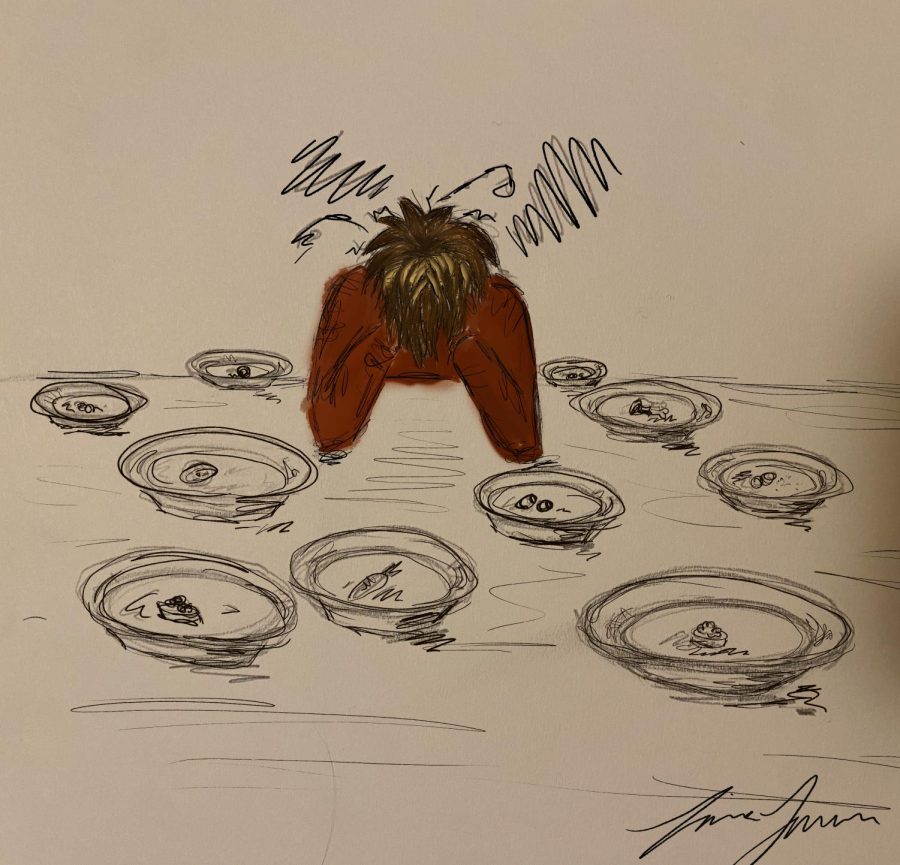It’s Time to End Terrifying Tapas Days
You come back from a relaxing and restorative break to face a day of all your classes, short passing periods, and loads of homework; it’s the dreaded Tapas day. While I absolutely love the A/B schedule, the school often tries to balance the schedule with the use of Tapas days when we return from breaks. And while Tapas days certainly have a completely valid purpose, I believe that the way in which they are structured should be re-envisioned altogether.
When asked if they liked Tapas days, over 84% of polled Lakeside students responded that they did not. Some common complaints were that “they’re very draining,” there are “too many classes,” and “the amount of homework I have in a week doubles.” Between the high percentage of students not liking Tapas days and their many issues with the schedule, a change must be made.
One way to improve Tapas days would be to remove the extended advisory and use those extra 40 minutes to make passing periods the usual 10 minutes as opposed to five. Mr. de Grys explains, “We could sacrifice advisory time for longer passing periods, but with an eight period day plus lunch, we’d spend at least 40 minutes putting an extra five minutes into each passing period. That didn’t seem like time well spent.” I disagree. Though spending time with your advisory is important, five-minute passing periods don’t allow time for filling up your water bottle or going to the restroom, as even just walking from the Athletic Center to Allen Gates can take over half that time. This lack of free time makes the day feel more hectic and adds to the exhaustion that affects many students. Because of this, I believe that trading advisory time for longer passing periods is undoubtedly worth it.
The fact that Tapas days involve going to every single class brings up another key issue: homework. In my experience, you usually get some sort of homework in all of your classes on a Tapas day. This is an issue because you are only given one night to complete homework for all your A day classes, instead of the regular two days. Because Tapas days often occur on the first day back from a break, they can make students feel overwhelmed and behind on school work while they are transitioning back to their academic lives. To fix this, Tapas days could instead occur on the last day before a break (so no homework would be able to be assigned) or be kept on the first day back from a break but with a policy that no homework can be assigned.
Instead of trying to “fix” Tapas days, they could also be entirely replaced, for example, with a day of asynchronous assignments. If there needs to be a day to even out the number of A and B days, an asynchronous work day could achieve that goal while allowing students to go through the day at their own pace. As long as asynchronous work were to be capped at around 30 minutes per class, I think this could be a great alternative to Tapas days.
A more engaging option would be to replace Tapas days with a mix of grade bonding days, service days, and mini-retreats because I think that days like these create memorable experiences that can help shape community and grade dynamics. These are more challenging to organize and can be costly, but I believe these activities are well worth it.
While Mr. de Grys stated that it’s too late to make any changes for this year, he added that “changes for next year are definitely on the table.” There are plenty of ways to change Tapas days in some capacity, whether that be modifying or replacing them. Because the administration seems flexible and open to student voices, I believe that if enough students speak up, we can once and for all get rid of the dreaded Tapas day.
Mason loves to read, bake, do jigsaw puzzles, take long walks with his dog in the park, and go on runs. When he isn't reviewing a bakery, he can be found...

